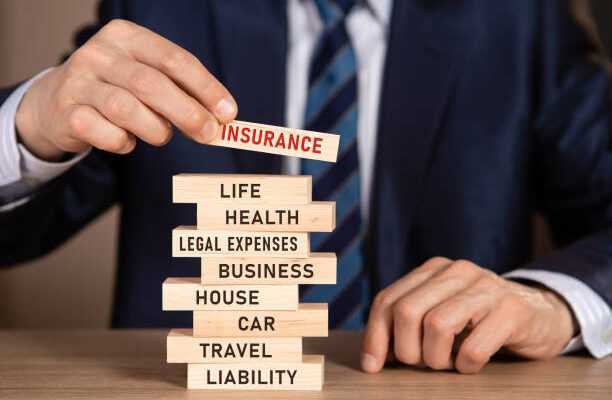Insurance is a necessary part of life for most people. It provides financial protection against unexpected events that can lead to significant expenses. However, there are many myths and misconceptions about insurance that can lead people to make poor decisions when it comes to protecting themselves and their families. In this article, we will debunk 15 of the most common insurance myths.
Insurance Myths
Myth #1: “I’m young and healthy, I don’t need insurance.”
Fact: Accidents and illnesses can happen to anyone at any time. It’s important to have insurance to protect yourself financially.
Many young and healthy people believe that they don’t need insurance because they’re unlikely to become ill or injured. While it’s true that young people tend to be healthier than older individuals, accidents and illnesses can happen to anyone at any time. If you don’t have insurance, you could be left with a hefty bill if you become ill or injured.
For example, if you were in a car accident and needed medical treatment, the costs could quickly add up. If you don’t have insurance, you could be responsible for paying for those costs out of pocket. Similarly, if you were to develop a serious illness such as cancer, the medical bills could be astronomical. Having insurance can protect you from these financial burdens and give you peace of mind.
Myth #2: “My auto insurance covers me if I rent a car.”
Fact: Your personal auto insurance may not cover you when renting a car. Check with your insurance provider or the rental company to find out.
Many people assume that their personal auto insurance policy will cover them when renting a car. While some policies do offer coverage, it’s not a guarantee. Before you rent a car, it’s important to check with your insurance provider or the rental company to find out if you’re covered.
If you’re not covered, you may need to purchase additional insurance from the rental company. While this can be an added expense, it’s better to be safe than sorry. If you get into an accident while driving a rental car, you could be responsible for paying for the damages out of pocket if you don’t have insurance.
Myth #3: “Red cars cost more to insure than other colors.”
Fact: The color of your car does not affect your insurance rates.
Many people believe that the color of their car affects their insurance rates, with red cars being more expensive to insure than other colors. However, this is a myth. The color of your car has no impact on your insurance rates.
Insurance companies base their rates on factors such as the make and model of your car, your driving record, and where you live. The color of your car is not a factor that’s considered when determining your insurance rates.
Myth #4: “If my home is destroyed, my insurance will cover everything.”
Fact: Your insurance policy may have limits and exclusions, so make sure you understand what is and isn’t covered.
Many homeowners believe that if their home is destroyed, their insurance will cover all of the damages. However, this is not necessarily the case. Your insurance policy may have limits and exclusions, so it’s important to understand what is and isn’t covered.
For example, if your home is damaged in a flood, your insurance policy may not cover the damages. Similarly, if you have expensive jewelry or other valuables, you may need to purchase additional insurance to cover those items.
Before you purchase a homeowners insurance policy, make sure you understand what’s covered and what’s not. You may need to purchase additional coverage to ensure that you’re fully protected in the event of a disaster.
Myth #5: “I don’t need life insurance because I don’t have dependents.”
Fact: Life insurance can provide financial security for more than just dependents.
Many people believe that life insurance is only necessary if they have dependents who rely on them financially. However, life insurance can provide financial security for more than just dependents. If you were to pass away unexpectedly, your loved ones could be left with funeral expenses, outstanding debts, and other financial burdens.
Even if you don’t have dependents, you may still want to consider life insurance to ensure that your loved ones are taken care of in the event of your death. Additionally, some types of life insurance policies can serve as an investment vehicle, allowing you to build up cash value over time.
Myth #6: “If I’m injured on the job, workers’ compensation will cover all of my medical expenses.”
Fact: Workers’ compensation may not cover all of your medical expenses, and there may be limits on the benefits you receive.
If you’re injured on the job, you may be entitled to workers’ compensation benefits. However, workers’ compensation may not cover all of your medical expenses, and there may be limits on the benefits you receive.
For example, if you’re injured on the job and require ongoing medical treatment, your workers’ compensation benefits may only cover a certain number of visits or a certain amount of time. Additionally, workers’ compensation benefits may not cover lost wages or other financial losses that result from your injury.
It’s important to understand the limits and exclusions of your workers’ compensation policy so you know what to expect in the event of an injury.
Myth #7: “If my friend crashes my car, their insurance will cover the damages.”
Fact: If your friend causes an accident while driving your car, your insurance policy will likely be responsible for covering the damages.
If your friend borrows your car and causes an accident, you may assume that their insurance policy will be responsible for covering the damages. However, in most cases, your insurance policy will be responsible for covering the damages.
This is because auto insurance policies typically cover the car rather than the driver. If someone is driving your car with your permission and causes an accident, your insurance policy will likely be responsible for covering the damages.
Myth #8: “I don’t need health insurance because I’m young and healthy.”
Fact: Health insurance can protect you from unexpected medical expenses and provide preventive care.
Even if you’re young and healthy, it’s important to have health insurance. Health insurance can protect you from unexpected medical expenses and provide preventive care to help you maintain your health.
For example, if you were to develop a serious illness such as cancer or diabetes, the medical bills could be astronomical. Having health insurance can help you pay for those expenses and ensure that you get the treatment you need. Additionally, many health insurance policies cover preventive care such as annual checkups, vaccines, and screenings, which can help you maintain your health and catch potential health problems early.
Myth #9: “If I’m at fault in an accident, my insurance rates will skyrocket.”
Fact: Your insurance rates may increase after an at-fault accident, but there are ways to keep your rates affordable.
If you’re at fault in a car accident, your insurance rates may increase. However, there are ways to keep your rates affordable. For example, many insurance companies offer accident forgiveness programs that waive the first accident on your record. Additionally, you may be able to take a defensive driving course to earn a discount on your insurance rates.
It’s important to shop around for insurance policies and compare rates before committing to a policy. By doing your research and choosing a policy that fits your needs and budget, you can keep your insurance rates affordable even after an at-fault accident.
Myth #10: “I don’t need to read my insurance policy because I trust my agent.”
Fact: It’s important to read your insurance policy to understand your coverage and ensure that it meets your needs.
Many people assume that they don’t need to read their insurance policy because they trust their agent to provide them with the right coverage. However, it’s important to read your insurance policy to understand your coverage and ensure that it meets your needs.
Insurance policies can be complex and filled with legal jargon, and it’s easy to overlook important details that could impact your coverage. By reading your policy carefully, you can ensure that you understand your coverage limits, deductibles, and exclusions.
Additionally, if you have any questions about your coverage, it’s important to ask your agent. They can help you understand your policy and ensure that you have the coverage you need to protect yourself and your assets.
In conclusion, insurance is a complex topic, and there are many myths and misconceptions that can lead to confusion and misunderstandings. By debunking these common insurance myths, you can make informed decisions about your insurance coverage and ensure that you have the protection you need. Remember to always read your policy carefully, ask questions, and shop around for the best coverage and rates.
Myth #11: “I have a good job, so I don’t need life insurance.”
Many people believe that if they have a good job and a steady income, they don’t need life insurance. However, if you have dependents who rely on your income, life insurance can provide financial support for them if you were to pass away unexpectedly. Even if you have savings or other assets, life insurance can provide additional security for your loved ones.
Myth #12: “I don’t need car insurance if I don’t drive much.”
Some people believe that if they don’t drive their car very often, they don’t need car insurance. However, even if you only drive your car occasionally, you are still at risk of accidents and other incidents. Additionally, most states require drivers to have car insurance, regardless of how often they drive.
Myth #13: “I don’t need homeowner’s insurance if I don’t have a mortgage.”
If you own your home outright, you may think that you don’t need homeowner’s insurance. However, homeowner’s insurance can protect you against a variety of risks, such as fire, theft, and liability. Without insurance, you could be financially responsible for any damages or injuries that occur on your property.
Myth #14: “I don’t need disability insurance because I have worker’s compensation.”
Worker’s compensation only covers injuries or illnesses that occur on the job. If you become disabled outside of work, you may not be covered by worker’s compensation. Disability insurance can provide financial support if you are unable to work due to a disability, regardless of where it occurred.
Myth #15: “I don’t need travel insurance if I’m healthy and traveling domestically.”
Even if you are traveling domestically and are in good health, unexpected events can still occur. Travel insurance can protect you against trip cancellations, lost luggage, and other travel-related issues that can be expensive to deal with on your own.
Conclusion
Insurance is a complex topic, and there are many myths and misconceptions that can lead to confusion and misunderstandings. By debunking these common insurance myths, you can make informed decisions about your insurance coverage and ensure that you have the protection you need. Remember to always read your policy carefully, ask questions, and shop around for the best coverage and rates.
Insurance myths are common misconceptions or misunderstandings about insurance policies, coverage, and requirements.
Knowing about insurance myths can help you make informed decisions about your insurance coverage, avoid misunderstandings and mistakes, and ensure that you have the protection you need.
Some common insurance myths include: “I don’t need car insurance because I’m a good driver”, “my landlord’s insurance covers my personal belongings”, “I don’t need life insurance because I don’t have dependents”, and “if I’m injured on the job, workers’ compensation will cover all of my medical expenses.”
Insurance myths can lead policyholders to make incorrect assumptions about their coverage, which can leave them vulnerable to financial losses, legal issues, and other problems.
To avoid falling for insurance myths, it’s important to educate yourself about your insurance policy, read your policy carefully, ask questions, and seek guidance from your insurance agent or a reputable insurance expert.
You can determine if an insurance myth is true or false by researching the topic, consulting with an insurance expert, and reading your insurance policy carefully to understand your coverage and exclusions.




